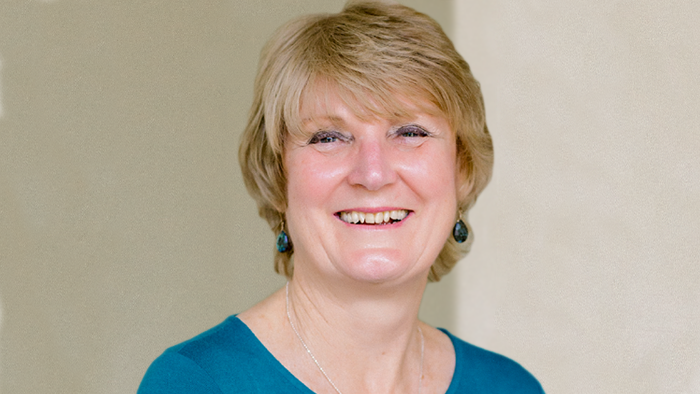
Provost at California Institute of Integral Studies
Walnut Creek, California | Higher Education
Liz Beaven, EdD, has been actively engaged in questions of education for most of her life and has spent over 30 years in Waldorf education. Her work as a classroom teacher, school administrator, adult educator, and researcher developed a conviction in the need for fundamental change in how we typically educate our children. This led her to CIIS, where she is working to develop a new graduate program in integral teacher education, contextualizing core principles and practices of the Waldorf approach within a contemporary landscape of equity, access, social justice, and the essential question of true preparation for the rapidly changing, unknown future that will belong to today’s school children.
ดร.อะลิซาเบ็ธ บีเวน (Elizabeth Beaven, PhD) ได้รับดุษฎีบัณฑิตสาขาศึกษาศาสตร์จากมหาวิทยาลัยแห่งแคลิฟอร์เนีย, เป็นผู้เชี่ยวชาญด้านการเรียนการสอนแบบวอลดอร์ฟมาอย่างยาวนานกว่า 30 ปี เคยเป็นครูประจำชั้นในโรงเรียนแบบวอลดอร์ฟทั้งในนิวยอร์กและแคลิฟอร์เนีย จากนั้นได้ดำรงตำแหน่งผู้บริหารและผู้อำนวยการของวิทยาลัย Rudolf Steiner College Fair Oaks และปัจจุบันเป็นประธานหลักสูตรและผู้บริหารระดับสูงของสถาบันการศึกษาองค์รวมแห่งแคลิฟอร์เนีย (California Institute of Integral Studies) รับผิดชอบด้าน Integral teacher education
ดร.บีเวน เป็นเครือข่ายของการศึกษาแบบองค์รวมในภูมิภาคเอเชียแปซิฟิก (APNHE) ซึ่งในประเทศไทยมีสถาบันอาศรมศิลป์และศูนย์จิตตปัญญาศึกษา มหาวิทยาลัยมหิดลเป็นเครือข่ายหลัก โดยท่านให้เกียรติมาเป็นองค์ปาฐกหลักให้กับงานระพีเสวนาและการประชุมวิชาการประจำปีจิตตปัญญาศึกษาในปีนี้ ในหัวข้อ “โรงเรียน ที่สำหรับการเยียวยา” (The School as a Place of Healing) ความรู้ความเชี่ยวชาญอันยาวนานบนเส้นทางครูของท่านจะถูกนำเสนอไปพร้อม ๆ กับท่าทีอันอบอุ่นและความเข้าอกเข้าใจอย่างลึกซึ้งจากประสบการณ์ตรง อีกทั้งความเรียบง่ายที่แฝงด้วยอารมณ์ที่เบิกบานของท่าน จะทำให้สิ่งที่ท่านพูดซึมซับเข้าสู่ใจของผู้ฟัง เกิดการเรียนรู้ได้ด้วยใจโดยแท้
THE SCHOOL AS A PLACE OF HEALING
Abstract
“School” is an almost universal institution. As such, schools hold potential to be
places of hope, unification, community, and healing in our modern, fast-paced world.
Practitioners of holistic and integral approaches to education share a common ground
of factors that best support the intellectual, physical, emotional, social, and spiritual
development and overall health of children. These factors extend beyond the traditional
focus of an academic curriculum and classroom and encompass the school environment,
families, and extended community. This presentation will explore several key aspects of
the school as a healing place.
There are multiple indications of the need to provide children with a healing
education. The pressures of modern life are often out of step with the true needs of
the developing child. Holistic, integral pedagogy and trauma-informed education offer
insight into the elements needed to support health and the development of essential
capacities.
The school has the potential to serve as an important community center and
resource, consolidating and providing a range of services to support families and
the wider community. The school becomes both a center and a mirror of the cultures
and values of its community, and all lives are enriched.
In addition to providing a center for community, the healing school honors the invisible
aspects of life and the unique individuality of each one, and offers practices that cultivate
inner development, reverence, and respect.
The concept of the school as a place of healing invites us to examine our
assumptions and practices and to imagine how we can integrate human-centered and
holistic elements into all aspects of our practice. Our children face an unknowable
future; a healing approach to schools will support the development of the capacities
that will be essential for our children to thrive.


